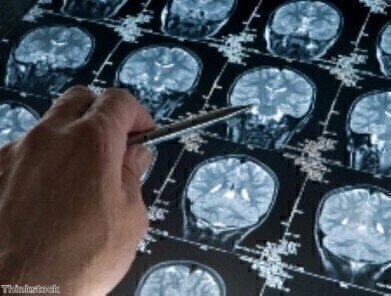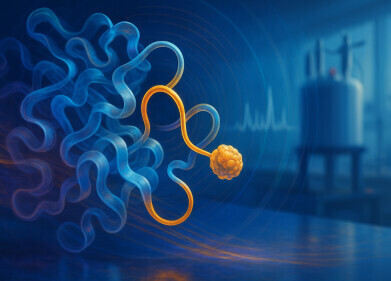-
 Scans and biopsies are traditionally used to identify brain cancer
Scans and biopsies are traditionally used to identify brain cancer
Microscopy & microtechniques
30-minute brain cancer test developed
Nov 29 2013
A new technique has been developed that could see brain cancer diagnosed in as little as 30 minutes. Current techniques mean that brain cancer diagnosis can take two to three days, but researchers from the University of Central Lancashire have developed a test that could provide a speedy diagnosis, which could lead to faster treatment.
Brain cancer is the formation of one of more cancerous tumours in the brain. Some forms of the disease spread incredibly quickly and can be difficult to treat. People of any age can develop the disease, however, it becomes more of a risk as people grow older.
Techniques that are currently used require a number of different scans, including magnetic resonance imaging (MRI), computerized tomography (CT) and electroencephalogram (EEG). If, after these scans, it is suspected that a tumour is present, a biopsy is required. This means that the patient will have to undergo surgery to remove a piece of tissue from the suspected tumour for testing. The surgery means a patient will have to stay in hospital for a number of days.
However, researchers have said that the new technique could lead to a transformation in terms of how brain cancer is diagnosed. Not only will it get rid of the need for invasive and numerous tests, but patients will also be able to avoid a lengthy hospital stay simply for the purposes of diagnosis.
The new technique utilises protein biomarkers and infrared light to identify glioma serum in the brain, which is a marker of the primary brain tumour. When infrared light is transmitted directly into this serum, it is able to ascertain its molecular vibration. This allows the researchers to tell whether the tumour is likely to be cancerous or benign. The test can take as little as half an hour.
Doctor Matthew Baker, study author from the School of Forensic and Investigative Sciences at the University of Lancashire, said to Medical News Today: "The result we have achieved is a milestone and has the ability to revolutionize the clinical environment by providing objective measures for diagnoses, enabling increased efficiency and economic impact upon the health services.
"We hope this will also help to relieve some of the emotional stress patients experience waiting for test results."
Digital Edition
Lab Asia Dec 2025
December 2025
Chromatography Articles- Cutting-edge sample preparation tools help laboratories to stay ahead of the curveMass Spectrometry & Spectroscopy Articles- Unlocking the complexity of metabolomics: Pushi...
View all digital editions
Events
Jan 21 2026 Tokyo, Japan
Jan 28 2026 Tokyo, Japan
Jan 29 2026 New Delhi, India
Feb 07 2026 Boston, MA, USA
Asia Pharma Expo/Asia Lab Expo
Feb 12 2026 Dhaka, Bangladesh
.jpg)
-(2).jpg)
















